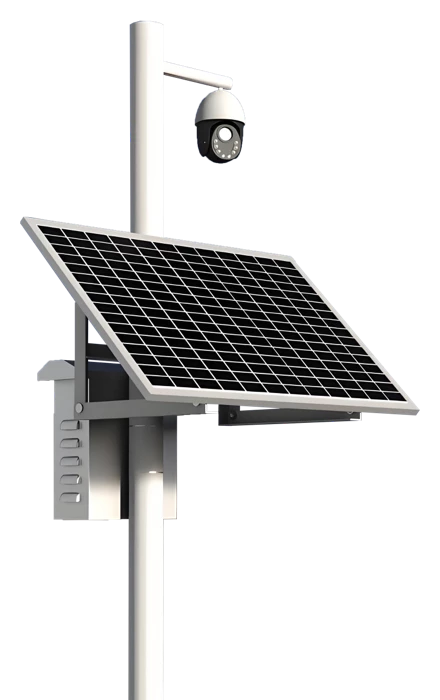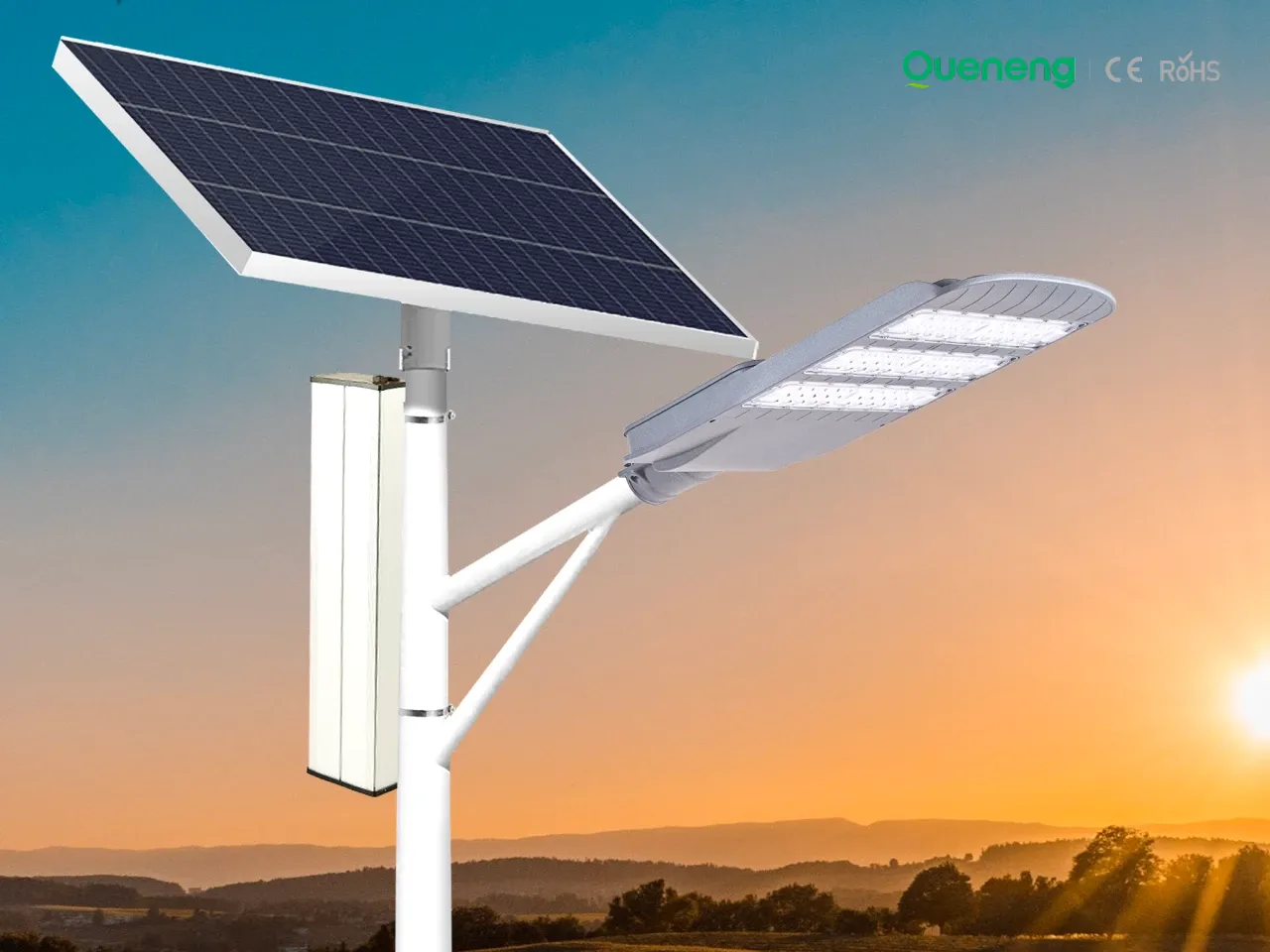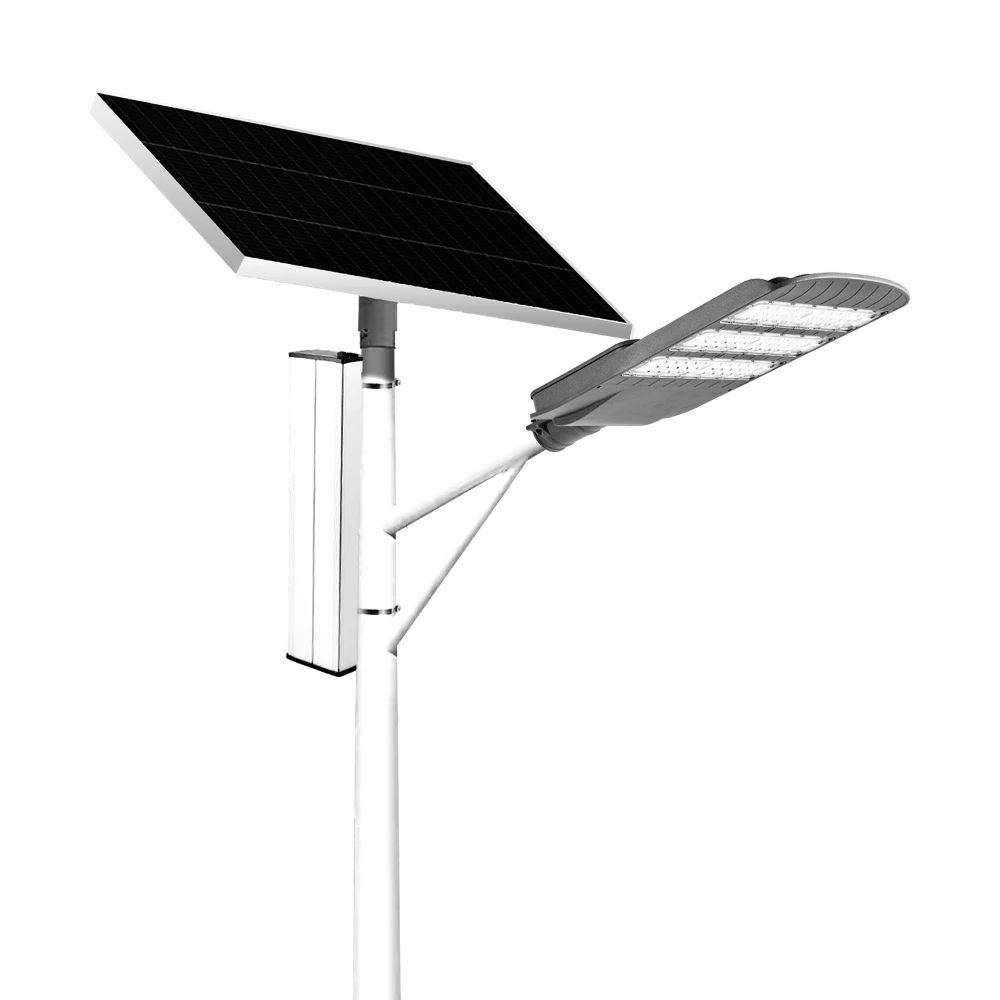Are there degradation rates for the solar panels or batteries?
Learn about the typical degradation rates of solar panels and batteries used in solar street lighting systems, their causes, performance implications, and how to extend their lifespan.
Introduction
Understanding the degradation rates of solar panels and batteries is crucial when planning or maintaining solar street lighting systems. These two components play a vital role in energy storage and generation, and their performance gradually declines over time.

Solar Panel Degradation
Due to prolonged exposure to the environment, solar panels naturally degrade and lose efficiency year over year.
Typical Degradation Rate:
- Solar panels typically degrade at a rate of 0.5% to 1% per year.
- After 25 years, panels may retain 75%–85% of their original efficiency.
Common Causes:
- UV exposure and thermal cycling
- Moisture ingress and oxidation
- Mechanical stress (hail, wind load)
Prevention Tips:
- Use certified Tier-1 panels with international certifications (e.g., CE, TUV)
- Ensure proper sealing and installation
- Regular cleaning and inspection
Battery Degradation
Batteries generally degrade faster than solar panels and often require replacement within a few years.
Common Battery Types and Lifespan:
| Battery Type | Average Lifespan | Annual Degradation Rate |
|---|---|---|
| Lead-acid | 2–3 years | 20–30% |
| LiFePO4 (Lithium Iron Phosphate) | 5–8 years | 10–15% |
| Gel batteries | 3–5 years | 15–20% |
Influencing Factors:
- Depth of discharge (DoD)
- Ambient charging temperature
- Cycle count
- Battery chemistry and quality
Maintenance Recommendations:
- Use batteries with BMS (Battery Management Systems)
- Maintain operation between 0°C–40°C
- Avoid deep discharges or overcharging
Impact of Degradation on System Performance
- Reduced lighting duration at night
- Energy mismatch—especially during winter
- Increased maintenance and battery replacement costs
Monitoring and Reducing Degradation
- Install smart controllers to monitor battery and panel performance
- Schedule periodic maintenance
- Track real-time SOC (state of charge) and voltage
Conclusion
Yes, both solar panels and batteries degrade over time. However, understanding their degradation patterns and applying proper maintenance can help maximize the lifespan and performance of your solar street lighting system. Quality components and proactive care are essential for long-term reliability.

FAQ
Q1: Can solar panels last more than 25 years?
A: Yes, most panels can continue producing energy after 25 years, though at reduced efficiency.
Q2: What is the best battery type for solar street lights?
A: LiFePO4 (Lithium Iron Phosphate) batteries are currently considered the most durable and efficient option.
Q3: How often should the battery be checked?
A: Battery status should be checked every 6–12 months to prevent failures and plan timely replacements.

Have more questions about our products or services?
The latest hot news you might like


A comprehensive 2026 guide to solar street light pricing. Covers commercial installation costs, LiFePO₄ battery trends, smart IoT features, and a detailed ROI comparison against traditional grid lighting.

A comprehensive 2026 outlook on integrated solar street lights, featuring performance benchmarks like bifacial panels, LiFePO₄ batteries, and Smart City IoT integration for maximum ROI.

Discover how solar panels power street lights, exploring the technology behind solar energy conversion, storage systems, and how solar-powered street lights are revolutionizing urban and rural lighting solutions.
FAQ
APMS system
What is the endurance time of the APMS system during rainy weather?
Optimized for rainy weather, the APMS system can maintain lighting endurance for several days under extended cloudy conditions, with specific duration depending on the environment and battery capacity.
Distributors
Can I get exclusive distribution rights in my region?
-
Exclusive distribution rights are available in select regions based on market conditions and your business capabilities. Please contact us to discuss opportunities for exclusive distribution in your area.
-
who we are
Is Queneng committed to sustainability?
Yes, sustainability is at the heart of our business. We are dedicated to providing renewable energy solutions that reduce carbon footprints. Our products are designed to be energy-efficient and environmentally friendly, and we continuously work to improve our manufacturing processes to minimize environmental impact.
Battery and Analysis
Do batteries need to be fully charged for long-term storage?
Sustainability
If the light or battery fails, can it be replaced individually?
Yes. Queneng’s solar street lights are designed with a modular structure, so components such as photovoltaic panels, batteries, lights, and controllers can be replaced individually, making maintenance convenient and cost-effective.
Solar Street Light Luan
Are Luan solar street lights weatherproof?
Yes, Luan solar street lights are designed to withstand a variety of weather conditions. They are built with weather-resistant materials that can endure rain, snow, high winds, and extreme temperatures. This ensures they can provide consistent performance year-round, even in harsh climates.

If you would like more information about Queneng solar lighting solutions, please send us a message by filling out the form below. Our professional team will get back to you within 24 hours!
Rest assured that your privacy is important to us, and all information provided will be handled with the utmost confidentiality.
Schedule a Meeting

Book a date and time that is convenient for you and conduct the session in advance.
Have more questions about our products or services?





















